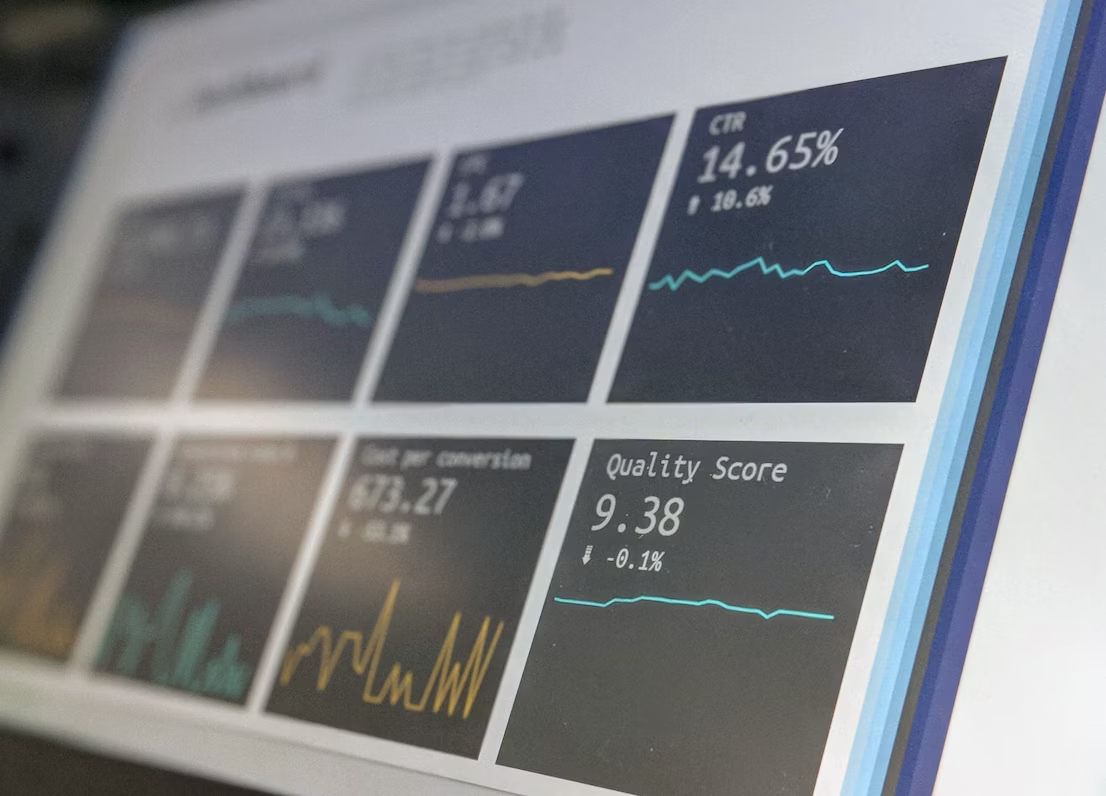Introduction to Theatre Website Design
An effective website is crucial for any theatre company to thrive. It is a virtual stage, showcasing productions, engaging patrons, and driving ticket sales. But - creating a captivating online presence poses unique challenges for the performing arts industry. From describing the essence of live shows to performing arts online marketing, theatre companies must navigate a complex landscape.
This article aims to equip theatre directors, playwrights, and dramaturgs with best practices for crafting and managing a website that resonates with their audience. By delving into domain naming strategies, user experience (UX) principles, search engine optimization (SEO), and leveraging tools like Webflow, we'll explore how to create an online platform that not only informs but also enthralls visitors, ultimately fostering a vibrant theatre community.

Define Your Website's Purpose
A theatre company's website should serve several key purposes: selling tickets, promoting upcoming shows, engaging patrons, and sharing important information. When you think about your website, you must ask what its main goal actually is. That is, to convince site visitors to book a ticket to your show. The site should be designed to drive ticket sales and generate excitement about your productions.
Your website should serve as a hub for sharing show details, rehearsal schedules, and other relevant updates with your cast, crew, and patrons. Ultimately, the purpose is to engage your community, build anticipation, and convert visitors into ticket buyers.
Know Your Audience
Theatre companies should have a deep understanding of their existing patrons and potential new audiences. According to The Broadway League's Demographics of the Broadway Audience Report, the Broadway audience is becoming more diverse, with 29% identifying as BIPOC in the 2022-2023 season. However, the majority (71%) were still Caucasian. The report also revealed that Broadway theatregoers tend to be affluent and well-educated, with 81% of those aged 25 or older holding a college degree.
When building a theatre website, it's crucial to cater to your specific audience demographics. Consider their age, education level, interests, and preferred communication channels. For example, if your primary audience is seniors, ensure the website is accessible, with larger font sizes and clear navigation. If you're targeting a younger, tech-savvy crowd, incorporate interactive features and optimise for mobile devices.
Researching your potential new audiences is equally important. Identify their interests, pain points, and online behaviours to create content and features that resonate with them. Conducting surveys, analysing website analytics, and monitoring social media conversations can provide valuable insights into your target audiences.
Choose the Right Domain Name
Selecting the perfect domain name is crucial for establishing a strong online presence and brand identity for your theatre company's website. Here are some best practices to consider:
- Keep it short, memorable, and easy to spell. Shorter domains are easier to remember and less prone to typos. Aim for a maximum of 15 characters.
- Incorporate relevant keywords related to your theatre company or location, but avoid overly generic terms.
- Opt for a .com domain if available, as it's the most recognizable and trusted top-level domain (TLD). If unavailable, consider alternatives like .theater, .arts, or your city's TLD.
- Avoid hyphens, numbers, and confusing misspellings, as they can be difficult to communicate verbally.
- Ensure the domain name aligns with your theatre company's brand and is easy to associate with your organization.
- Check for potential trademark conflicts and ensure the domain name is available across major social media platforms for consistent branding.
By following these guidelines, you can secure a memorable, brandable, and professional domain name that will help establish a strong online identity for your theatre company's website.
Design for Optimal User Experience (UX)
User experience (UX) is crucial for creating a website that meets the needs and expectations of your patrons. A well-designed UX ensures intuitive navigation, making it easy for visitors to find the information they need. Responsive design is also essential, as more and more people access websites from mobile devices. Your site should adapt seamlessly to different screen sizes and orientations, providing a consistent and enjoyable experience across all devices.
Fast loading times are another key aspect of good UX. Studies have shown that even a one-second delay in page load time can significantly increase bounce rates and negatively impact user engagement. Optimize your website's images, leverage browser caching, and consider using a content delivery network (CDN) to ensure lightning-fast page load times.
By prioritizing UX design, you can create a website that not only looks great but also provides a seamless and enjoyable experience for your patrons, increasing their satisfaction and engagement with your theatre company.
Conduct Usability Research
Usability research is crucial for ensuring your theatre website meets the needs and expectations of your target audience. Employ various testing methods, such as user testing, to gather insights into how visitors interact with your site. User testing can involve techniques like moderated lab studies, remote unmoderated tests, or session recordings that capture user behavior.
Analyze website data and user feedback to identify areas for improvement. Tools like Google Analytics can provide valuable insights into visitor behavior, popular pages, and potential pain points. Embrace an iterative design process, continuously refining and optimizing your website based on user feedback and data-driven decisions.
Remember, usability is an ongoing process. Regularly test and gather feedback to ensure your theatre website remains user-friendly, engaging, and aligned with the evolving needs of your patrons.
Structure Your Website Content
A well-structured website is important for providing good user experience and ensuring that visitors can easily find the information they need. When it comes to structuring your theatre website, it's essential to follow best practices in information architecture and hierarchy.
One effective approach is to adopt a hierarchical structure, where the most important information is presented first, followed by progressively more specific content. This structure allows users to quickly grasp the overall purpose and offerings of your theatre company before diving into the details. For example, your homepage should provide an overview of your theatre, upcoming productions, and key information, while subsequent pages delve into specific shows, cast members, and behind-the-scenes content.

Also, ensure a logical flow between pages and sections, with each step or section naturally following the preceding one. This clear progression creates a smooth and engaging storytelling experience for your visitors. Utilize navigational elements, such as menus and breadcrumbs, to help users understand their current location within the website and easily navigate to other relevant sections.
When structuring your content, consider the different user personas and their respective needs. For instance, patrons may be primarily interested in show schedules, ticket purchases, and venue information, while industry professionals might seek information about auditions, production details, and press releases.
By following best practices in website structure and information architecture, you can create a user-friendly and engaging experience that keeps visitors engaged and encourages them to explore your theatre's offerings further. Remember to regularly review and update your website's structure to ensure it remains aligned with your evolving content and user needs.
Essential Pages for Theatre Websites
Every theatre website should have a few key pages to provide essential information to patrons and potential audience members. These include:
- Show Calendar: Prominently feature an up-to-date calendar or listing of upcoming shows, including dates, times, and synopses. Make it easy for visitors to see what's playing and when.
- Cast and Crew Bios: Dedicate a section to highlighting the talented actors, directors, writers, and crew members involved in your productions. Bios help build connections with your audience.
- Venue Details: Provide clear information about your theatre's location, parking options, accessibility accommodations, and any other relevant details to help patrons plan their visit.
- Online Ticketing: Integrate a secure online ticketing system directly into your website, allowing visitors to purchase tickets with ease. Make sure the process is simple and user-friendly.
- About Us: Share your theatre company's mission, history, and values to give visitors a sense of your organization's identity and what makes you unique.
- News and Reviews: Maintain a blog or news section to share updates, behind-the-scenes glimpses, and positive reviews from critics and audience members.
By including these essential pages, you'll create a comprehensive online presence that informs and engages your audience while driving ticket sales and fostering a connection with your theatre company.
Optimize for Search Engines
Search engine optimization (SEO) is important for driving organic traffic to your theatre website. Start by conducting keyword research to identify relevant search terms your audience uses. Incorporate these keywords strategically into your website's content, meta tags, and URLs. Create an XML sitemap to help search engines discover and index your site's pages efficiently.
Leverage free tools like Google Search Console (https://search.google.com/search-console/about) to monitor your site's performance in search results, identify crawl errors, and submit your sitemap. Google Analytics (https://analytics.google.com/) provides valuable insights into your website's traffic sources, user behavior, and conversion rates, enabling data-driven optimization decisions.

While SEO is a long-term strategy, consistently creating high-quality, keyword-optimized content and improving your site's user experience can gradually boost your search engine rankings and organic traffic over time.
Build an Email Marketing Strategy
Email marketing is a powerful tool for theatre companies to engage with patrons, promote shows and events, and build a loyal following. Here are some best practices to consider:
- Segment your email list based on interests, location, and engagement levels to deliver relevant content
- Use responsive design to ensure emails display correctly on mobile devices
- Send regular newsletters with behind-the-scenes updates, artist interviews, and upcoming show information
- Offer exclusive discounts, presale opportunities, and special offers to email subscribers
- Make it easy to subscribe and unsubscribe from your email list
- Analyze email metrics like open rates, click-through rates, and conversions to optimize your strategy
- Leverage email automation for timely communications, such as show reminders and post-event follow-ups
- Collaborate with industry experts for customized best practices tailored to the arts
By building a strong email marketing strategy, theatre companies can foster deeper connections with their audiences, drive ticket sales, and cultivate a vibrant community around their artistic endeavors.
Leverage Social Media
Social media is a powerful tool for promoting your theatre company and engaging with patrons. Establish a strong presence on platforms like Facebook, Twitter, and Instagram to connect with your audience. Consistently share updates, behind-the-scenes glimpses, and promotional content related to your productions.
Utilize various content formats, such as videos, images, and live streams, to capture the essence of your performances and build excitement. Encourage patrons to share their experiences using dedicated hashtags, and engage with their posts by liking, commenting, and sharing.
Consider running social media contests or offering exclusive discounts to your online followers. Respond promptly to inquiries, comments, and reviews, fostering a sense of community and demonstrating your commitment to exceptional customer service.
Highlight Reviews and Media Coverage
Leveraging positive reviews, media coverage, and industry accolades can significantly boost your theatre company's credibility and attract new audiences. Here are some best practices:
- Prominently display testimonials and quotes from respected critics, publications, or influencers on your website. This social proof can persuade potential patrons to attend your shows. Cite the sources using markdown formatting, e.g., "A brilliant production that left me spellbound."
- Create a dedicated press page to showcase interviews, articles, and other media mentions about your company or productions. Update it regularly with new coverage using excerpts and links to the full pieces, e.g., "The New Yorker called our staging 'a tour de force' that shouldn't be missed."
- If your theatre company or artists have won awards or honors, create an awards section highlighting these achievements with logos, descriptions, and years received. This demonstrates your organization's excellence and prestige.
- Issue press releases announcing major news, such as upcoming productions, cast changes, or special events. Distribute these through newswires and directly to local media outlets to increase coverage opportunities.
By prominently featuring positive reviews, media buzz, and industry recognition on your website, you can build trust with potential audiences and showcase the high caliber of your theatrical offerings.
Enable Online Ticketing
Integrating an online ticketing system into your theatre website is a game-changer. It streamlines the purchasing process, making it convenient for patrons to buy tickets anytime, anywhere. With mobile-friendly platforms, they can secure seats on the go, eliminating the need for physical queues.
Online ticketing also opens up opportunities for subscription packages and memberships. Patrons can easily sign up for seasonal passes or flexible plans tailored to their preferences. This not only boosts ticket sales but also fosters a loyal audience base.
Moreover, online ticketing systems provide valuable data insights, allowing you to analyze purchasing patterns, popular shows, and audience demographics. This intelligence can inform strategic decisions, targeted marketing campaigns, and personalized offerings, ultimately enhancing the overall patron experience. Also, consider using other digital tools in theatre.
Use Webflow for Easy Site Building
Webflow is a powerful website builder that allows you to create professional, responsive websites without writing code. Its visual canvas and drag-and-drop interface make it easy to design and build your theatre company's website, even if you have no prior web development experience.
One of the key advantages of using Webflow is its focus on responsive design. With Webflow, your website will automatically adapt to different screen sizes and devices, ensuring a seamless experience for your visitors whether they're accessing your site from a desktop, tablet, or mobile phone.
Webflow also offers a vast library of pre-built templates and design elements that you can customize to match your theatre company's branding and aesthetic. From hero sections and navigation menus to galleries and event listings, Webflow has everything you need to create a visually stunning and functional website.
Continuously Improve Your Site
Maintaining an exceptional theatre website requires ongoing effort. Regularly analyze your website's performance using tools like Google Analytics to understand user behavior, traffic sources, and engagement metrics. This data can inform your content strategy, navigation structure, and design decisions.
Implement A/B testing to experiment with different variations of your website elements, such as headlines, calls-to-action, or layout. This approach allows you to make data-driven decisions based on actual user interactions and preferences.
Actively seek feedback from your patrons, actors, and staff. Conduct surveys, user interviews, or leverage feedback forms on your website to gather insights on areas for improvement, new features, or content ideas.
Consistently update your website's content, ensuring it remains fresh, relevant, and engaging. Promote upcoming shows, share behind-the-scenes glimpses, and highlight cast and crew interviews to keep your audience invested.
Regularly maintain your website's backend, including software updates, security patches, and performance optimizations. Outdated or poorly maintained websites can negatively impact user experience, search engine visibility, and overall credibility.
By continuously monitoring, testing, and refining your theatre website, you can provide an exceptional online experience that resonates with your audience and supports the success of your productions.









